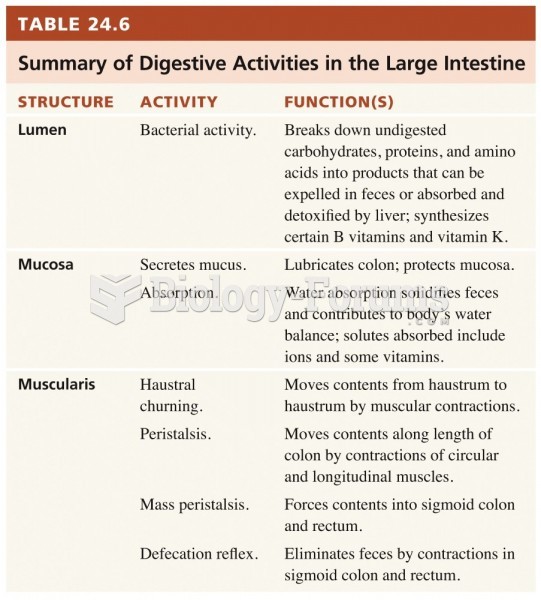|
|
|
In 1835 it was discovered that a disease of silkworms known as muscardine could be transferred from one silkworm to another, and was caused by a fungus.
The lipid bilayer is made of phospholipids. They are arranged in a double layer because one of their ends is attracted to water while the other is repelled by water.
The FDA recognizes 118 routes of administration.
Nitroglycerin is used to alleviate various heart-related conditions, and it is also the chief component of dynamite (but mixed in a solid clay base to stabilize it).
The cure for trichomoniasis is easy as long as the patient does not drink alcoholic beverages for 24 hours. Just a single dose of medication is needed to rid the body of the disease. However, without proper precautions, an individual may contract the disease repeatedly. In fact, most people develop trichomoniasis again within three months of their last treatment.
 Electrocardiography. (a) Electrodes are placed on the patient’s chest to record the electrical event
Electrocardiography. (a) Electrodes are placed on the patient’s chest to record the electrical event
 People whose behaviors violate norms are often called mentally ill. “Why else would they do such ...
People whose behaviors violate norms are often called mentally ill. “Why else would they do such ...





